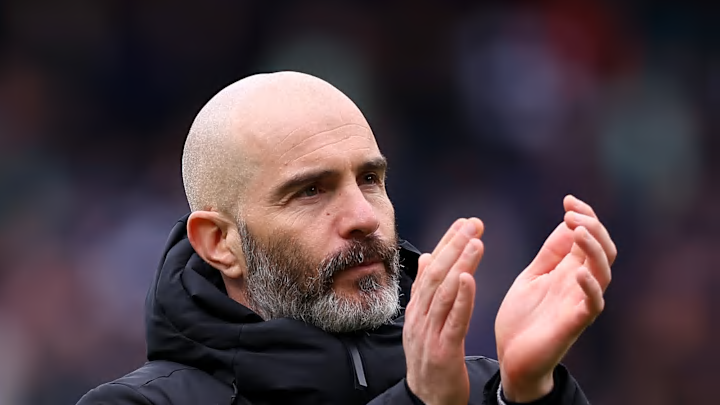In the ever-evolving landscape of football management, Chelsea FC has once again turned heads by appointing Enzo Maresca as their new head coach. Known for their propensity for dramatic managerial changes, the Blues’ latest choice reflects a desire for innovation and tactical sophistication.
Maresca, a relatively young and highly regarded figure in coaching circles, brings with him a fresh perspective and a wealth of experience garnered from both his playing days and his burgeoning managerial career. This article delves into Maresca's background, his footballing philosophy, and what Chelsea fans can expect from his tenure at Stamford Bridge.
Early Life and Playing Career
Born on February 10, 1980, in Pontecagnano Faiano, Italy, Enzo Maresca’s journey in football began in the youth ranks of AC Milan. Although he never made a senior appearance for the Rossoneri, he quickly caught the eye of scouts across Europe. Maresca’s professional debut came with West Bromwich Albion in the English First Division (now the Championship) in 1998. His performances in midfield soon saw him return to Italy, where he enjoyed spells with Juventus, Bologna, Piacenza, and Fiorentina.
Maresca’s playing career is perhaps best remembered for his time at Sevilla, where he became a crucial part of the squad. During his tenure from 2005 to 2009, he helped the team secure back-to-back UEFA Cups in 2006 and 2007, cementing his reputation as a dependable and technically gifted midfielder. After Sevilla, Maresca's career took him to Olympiacos, Malaga, Sampdoria, and finally, Hellas Verona, where he retired in 2017.
Transition to Coaching
Upon hanging up his boots, Maresca immediately transitioned into coaching, displaying the same intelligence and strategic insight that marked his playing days. His first major coaching role came as an assistant manager at Ascoli in Serie B, where he helped develop young talents and implemented modern tactical ideas. This was followed by a stint with the Manchester City U23 team, where he further honed his coaching skills under the guidance of Pep Guardiola’s coaching staff.
Maresca’s big break came when he was appointed head coach of Parma in Serie B. Although his time at Parma was short-lived, it provided him with invaluable experience in managing a first-team squad, dealing with the pressures of senior football, and refining his tactical approach.
Tactical Philosophy
Maresca’s footballing philosophy is deeply influenced by his experiences under various top-tier managers and his time at Manchester City. His approach is characterized by a commitment to possession-based football, high pressing, and fluid attacking movements. Maresca favors a flexible 4-3-3 or 4-2-3-1 formation, designed to control the midfield and exploit the wide areas with pacey wingers.
One of Maresca’s key strengths is his ability to develop young players. At Manchester City, he was instrumental in the progress of several academy stars, instilling in them a sense of tactical discipline and creative freedom. This focus on youth development aligns well with Chelsea’s recent strategy of integrating academy products into the first team.
Challenges at Chelsea
Taking the reins at Chelsea presents a unique set of challenges for Maresca. The club is known for its high expectations and quick turnover of managers. He will need to quickly earn the trust of a squad that has seen significant changes in recent years, with a mix of established stars and emerging talents.
Furthermore, the Premier League’s competitive nature requires adaptability and resilience. Maresca’s tactical acumen will be tested against some of the best managers in the world. His ability to maintain harmony within the squad and manage egos will be crucial in navigating the pressures of the job.
Expectations and Potential Impact
Chelsea fans can expect a more cohesive and aesthetically pleasing style of play under Maresca. His emphasis on possession and dynamic attacking football should resonate well with a squad boasting creative talents. Additionally, his track record with young players could see more opportunities for Chelsea’s highly regarded academy graduates.
In the long term, Maresca’s appointment could signal a shift towards a more stable and long-term managerial approach at Chelsea. If given the time and resources, he has the potential to build a team capable of competing for top honors domestically and in Europe.
Conclusion
Enzo Maresca’s appointment as Chelsea’s head coach marks an exciting new chapter for the club. His blend of tactical intelligence, commitment to youth development, and modern footballing philosophy makes him a promising choice to lead the Blues. While challenges undoubtedly lie ahead, Maresca’s journey from a talented midfielder to a visionary coach suggests he is well-equipped to handle the pressures of managing one of the Premier League’s most ambitious clubs. Chelsea fans have every reason to be optimistic about the future under his guidance.
